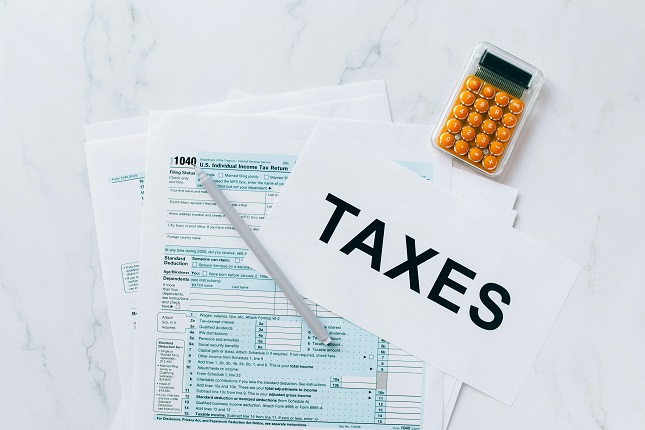The United Kingdom has its own taxation system with its own calendar system that often confuses people outside of the United Kingdom. While other nations establish their tax year to their year-long calendar, the United Kingdom’s tax year has different dates altogether. To stay in compliance and prevent penalties, for businesses that do business, invest, or are otherwise related to the United Kingdom financially, it is necessary to know these dates.
It outlines how the UK tax year is structured, why it is different from others, and deadlines that matter to individuals, businesses, and foreign taxpayers.
The Basics: What Are Tax Year Dates of the UK?
The British tax year falls between:
6th April – 5th April next year
For example:
- 2023/24 tax year: 6 April 2023 – 5 April 2024
- 2024/25 tax year: 6 April 2024 – 5 April 2025
It applies throughout the UK for income tax, capital gains tax, inheritance tax, and other personal taxation matters.
Why Does the UK Tax Year Start on 6th of April?
6 April begin date has its roots centuries ago, connected with previous changes of calendar:
- Until 1752, Britain used the Julian calendar, with its new year starting on 25 March (which was called Lady Day).
- When the British switched to the Gregorian calendar, 11 days were skipped. To avoid breaking the tax cycle, the date was moved to 5 April.
- It was subsequently fine tuned to 6 April, a date it still holds to date.
It would be odd to say, but it is indeed a historic anomaly that has its roots in the UK tax code.
Who Is Responsible for Hearing Dates of UK Tax Year?
- United Kingdom Employees – PAYE (Pay As You Earn) matches the tax year.
- Self-employed individuals – need to report income and send Self Assessment from these dates.
- Investors – capital gains tax allowance is renewed every 6 April.
- Expatriates and non-UK taxpayers – you are UK tax resident for these dates, if they apply to you.
- Companies – while corporation tax is charged for accounting periods, however, personal tax year deadlines still need to be considered by directors.
Key UK Tax Year Dates
Below is a list of most significant milestones with regard to tax year:
- End of Tax Year: 5 April
Determines end of income and gains.
Key for tax planning—application of allowance or relief to be made before this date. - Paper Tax Return Deadline: 31 October
If you file it, HMRC needs to receive your Self Assessment by 31 October of the year after the end of the tax year. - Online Tax Return Deadline: 31 January
Most common filing method.
For tax year 2023/24 ending 5 April 2024, the deadline for submission is 31 January 2025. - Tax Payment Date: 31 January
Payment of all taxes due is due by this date.
First “payment on account” of new tax year also falls due. - Second Payment on Account: 31 July
For assessees with heavy tax liabilities, a further payment is made semi-annually.
How Tax Year Affects Individuals
Employees (PAYE system)
Most tax is automatically deducted, but year-end forms like P60 or P45 matter.
Any overpay or underpay can be claimed after the tax year.
Self-Employed
Tax year, not calendar year, is applied to income and spending.
Year to year record can greatly simplify Self Assessment.
Investors
ISA annual allowance is re-established on 6 April each year.
Capital gains thresholds also get wiped, so that timing asset sales can impact your bill.
International Considerations
For travelers from outside of the UK or traveling to or from the UK:
- Split-year treatment can be applied, subdividing the year into non-resident and UK-resident periods.
- Double taxation agreements can potentially impact income that is taxed in the UK or overseas.
Knowing the UK tax year dates helps align with other countries’ systems, which usually follow January–December.
FAQs Regarding UK Tax Year Dates
When does the UK tax year start and end?
It begins on 6 April and runs until 5 April of the coming year.
Why not from Jan to Dec like other countries?
The dates go back to old calendric changes that happened in 1752, and that system has persisted to this date.
Do companies observe similar holidays?
Not necessarily. Corporation tax is paid by companies during their own accounting periods, but personal tax returns are still lodged by directors by UK tax year.
What to do with respect to missing 31 January deadline?
You’ll be penalized £100 for late filing, no matter if you owe tax or not. More penalties are applied for each subsequent delay.
What are expat tax year dates?
If you are a UK tax resident, income you receive from anywhere in the world during the tax year is Chargeable to UK tax (unless you’re exempt). If you emigrate part-way through, split-year rules can assist.
Can I change my personal accounting period to match another country’s tax year?
No. Man-days should adhere to 6 April–5 April UK cycle. Only companies are accommodative with accounting date.
I can contribute to ISA when?
Until 5th April of every year. A fresh allowance is issued on 6th April.







































